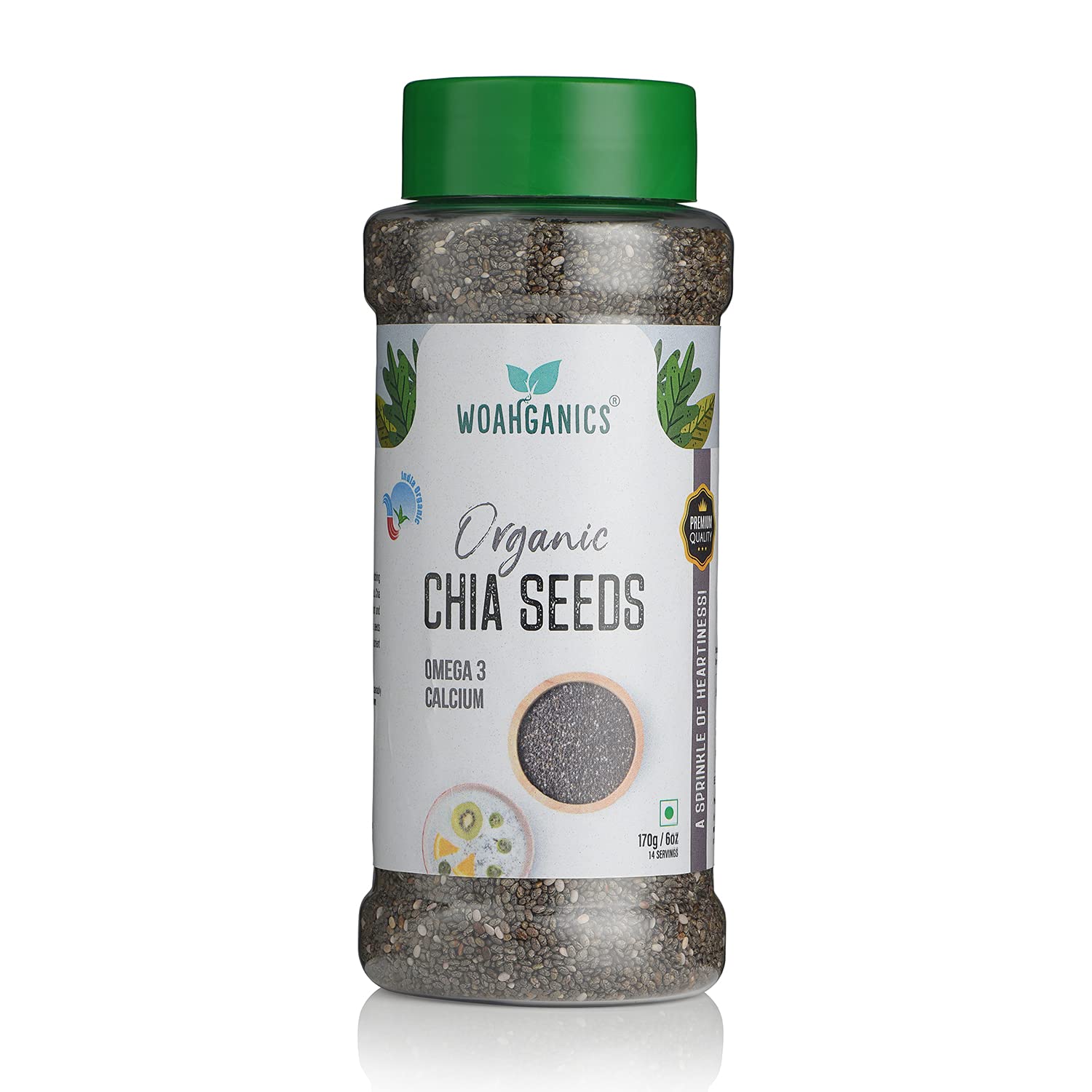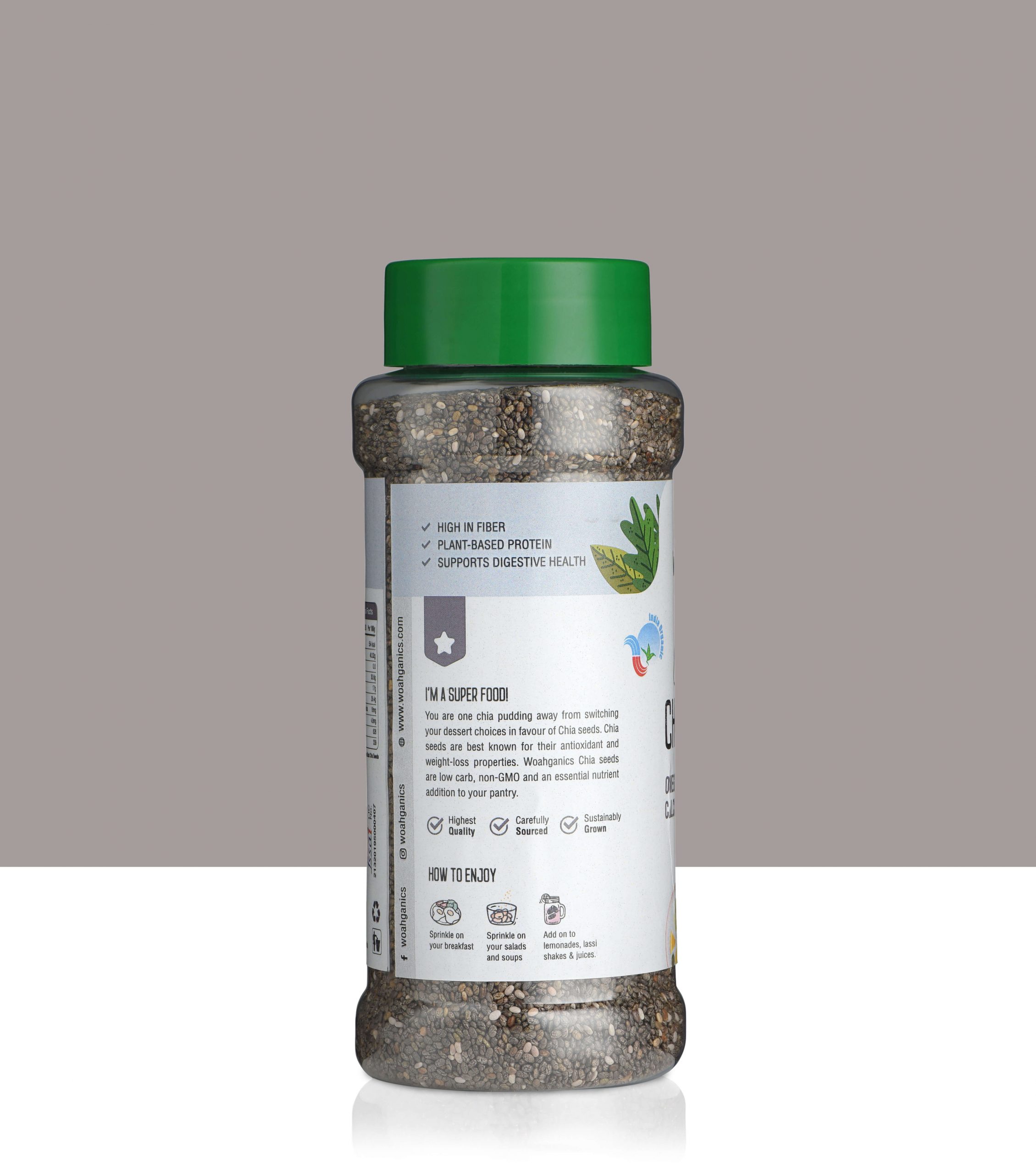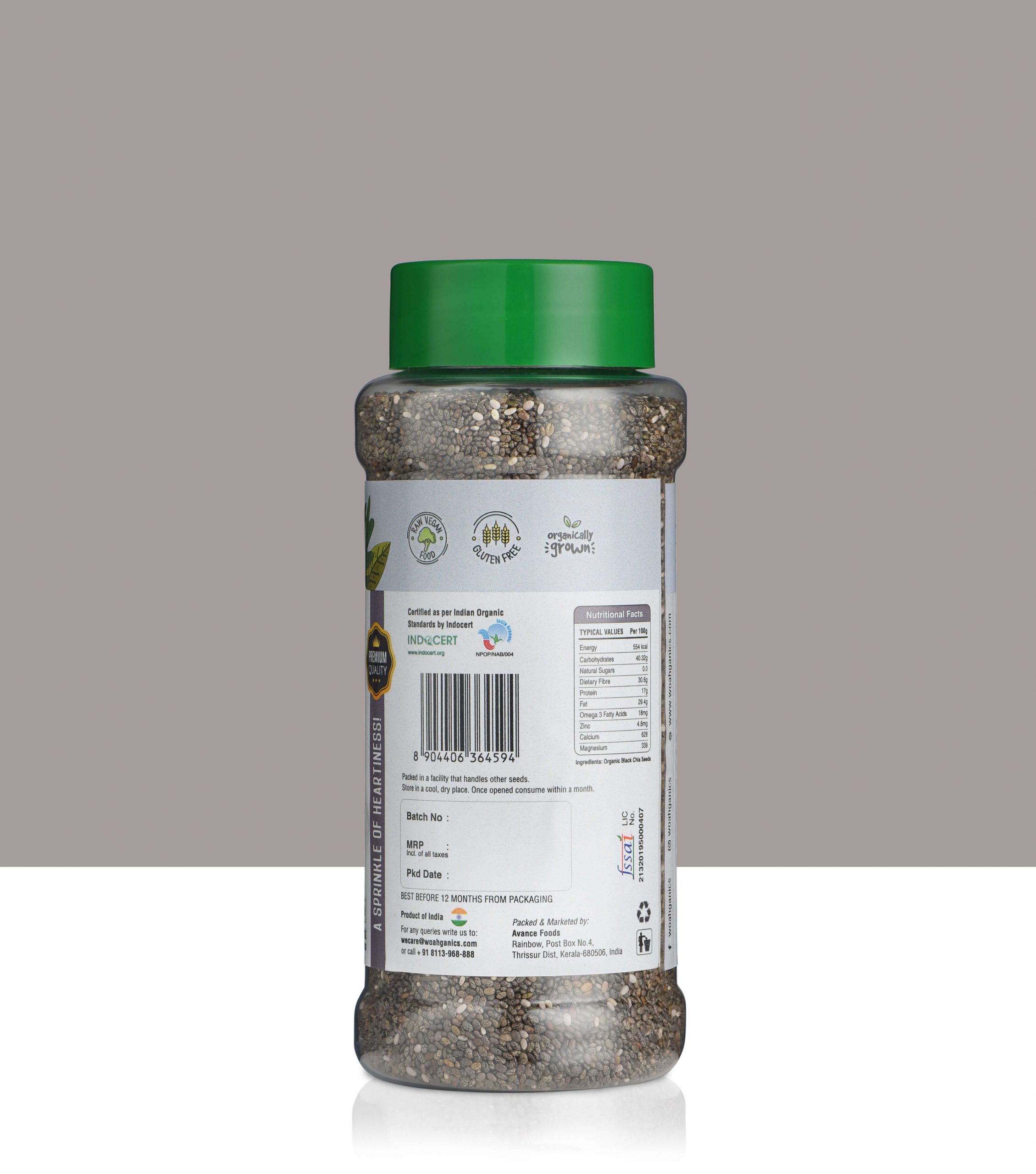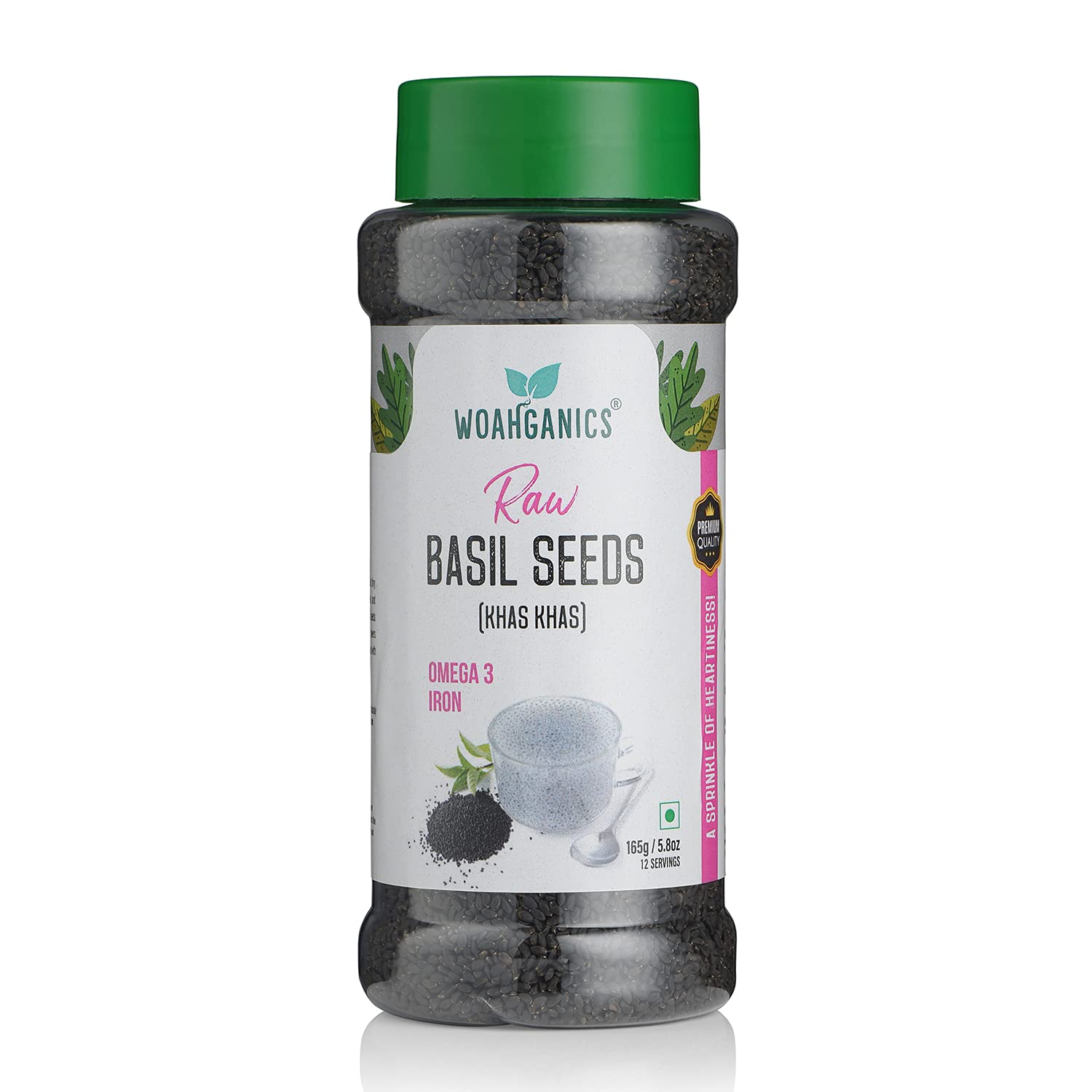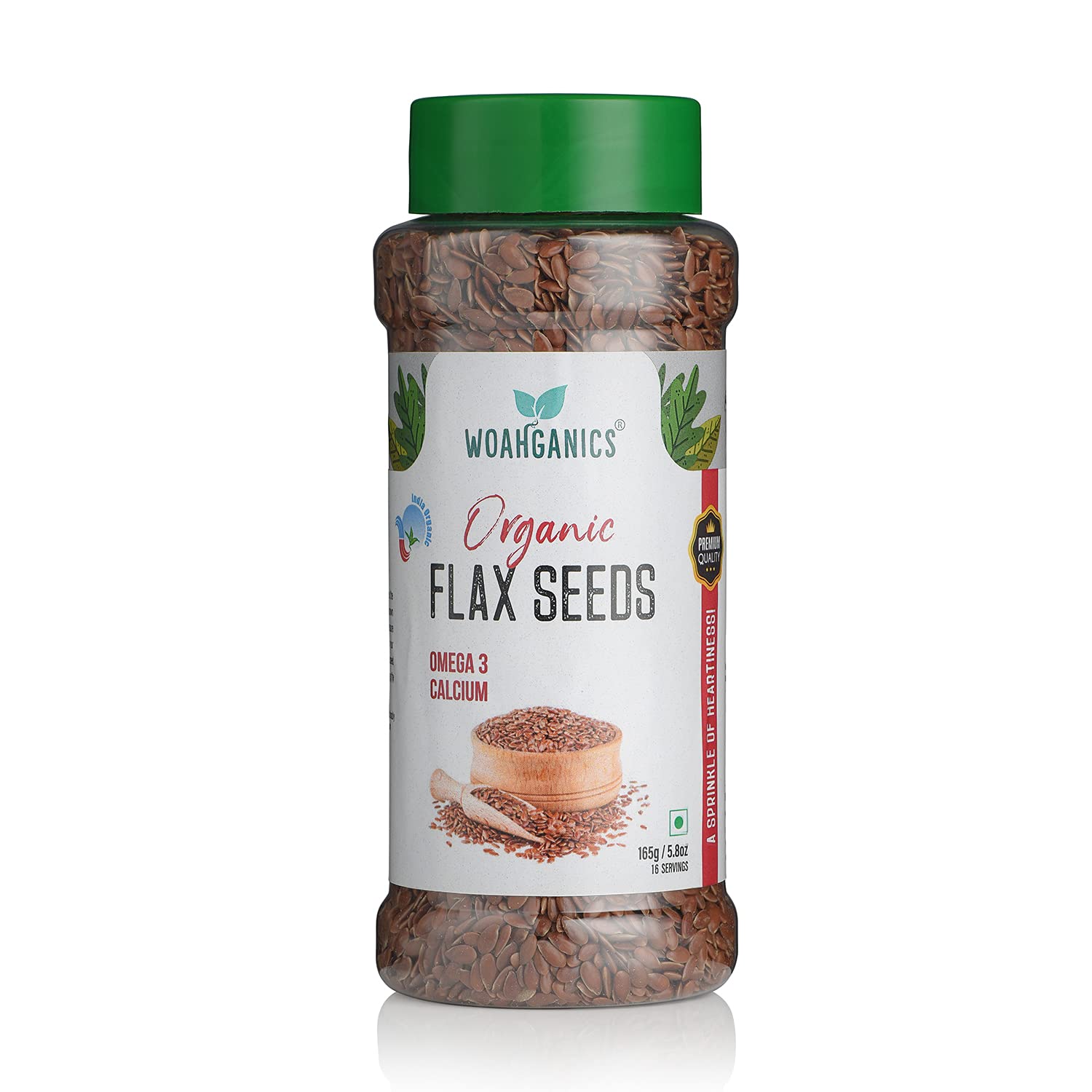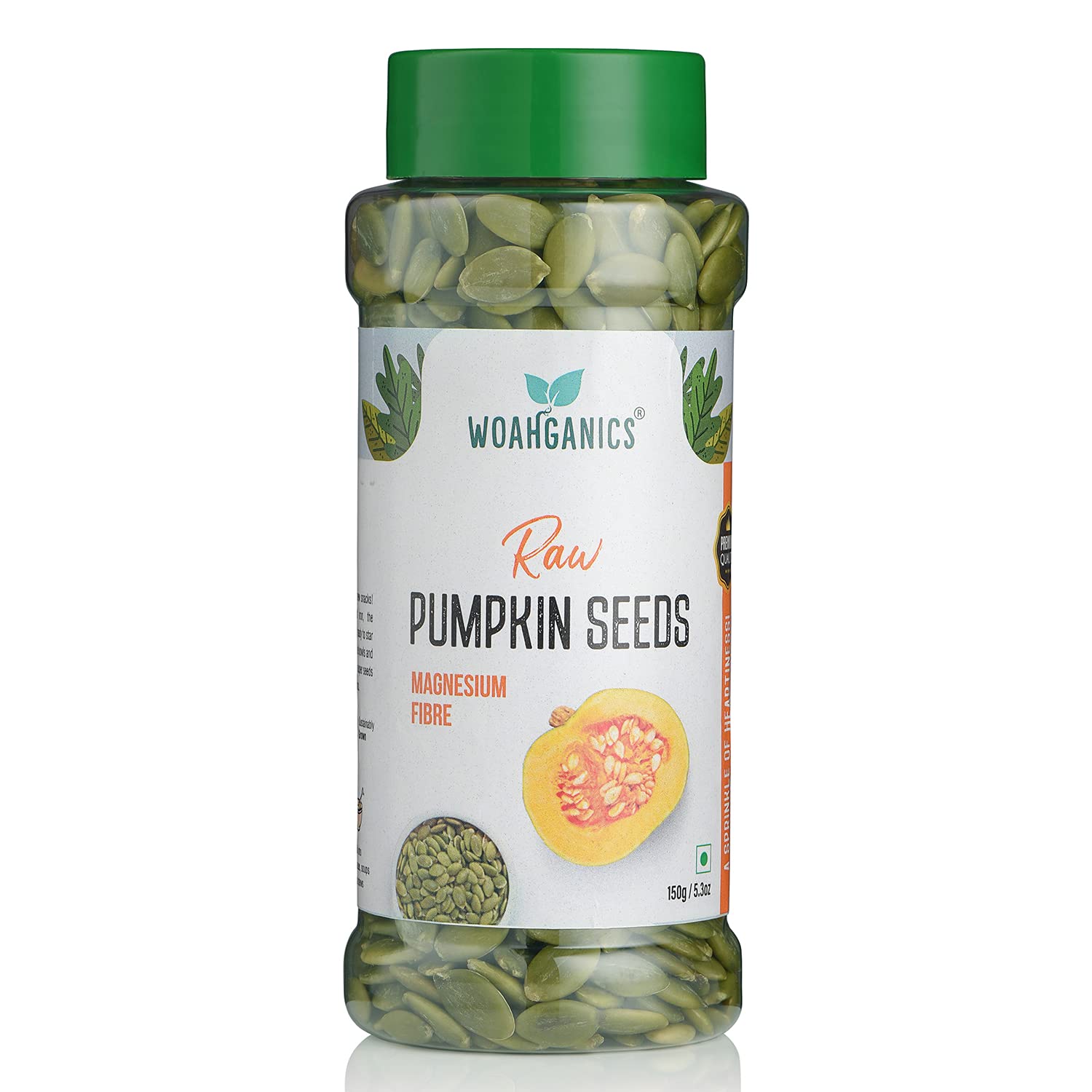₹195
Raw Chia Seeds
Net weight: 170 gm
Dress your salad or blend your smoothies with Woahganics organic chia seeds which are sustainably sourced from the best regions of India. Packed with loads of healthy doses of protein, fibre, antioxidants, these super seeds are all you need for a healthy digestive system and a textured smoothie!
Description
Fast facts on chia seeds:
- Chia seeds are a good source of omega-3 fatty acids, fiber, antioxidants, iron, and calcium.
- A 28-gram, or 1-ounce, serving of chia seeds also contains 5.6 grams of protein.
- Mixed with water, they can replace eggs in vegan cooking.
- Chia seeds can be eaten cooked or raw, but they should be added to another food or soaked before eating.
Chia Seeds Benefits
Plant-based foods have long been associated with a reduced risk of many adverse health conditions, including obesity, diabetes, heart disease, and overall mortality.
They have been shown to support a healthy complexion, increased energy, and overall lower weight.
Chia and the power of fiber
The United States (U.S.) dietary guidelinesTrusted Source for 2015 to 2020 suggests that men under the age of 50 years should consume 30.8 grams (g) of fiber per day and women under the age of 50 years should consume 25.2 g per day.
For adults over 50 years of age, the recommendation for men is 28 g per day, and for women, it is 22.4 g per day. Most people consume less than half of that recommendation.
The easiest way to increase fiber intake is to eat more plant-based foods like fruits, vegetables, nuts, seeds, and unprocessed grains. Just one ounce of chia seeds provides 10 grams of fiber, almost half the daily recommendation for a woman over 50 years.
Weight loss
Foods that are high in fiber help people to feel full for longer, and they are usually lower in calories. Increased fiber intake and a high fiber diet have been shown to help with weight loss.
Chia seeds contain nearly 5 grams of fiber per tablesoonTrusted Source, and their high levels of omega-3-fatty acids and alpha-linoleic acid may be useful for weight loss. The seed can also be consumed as a gel when mixed with water. This causes it to digest more slowly in the body, potentially preventing hunger for a longer period.
Treating diverticulosis
High-fiber diets have been shown to decrease the prevalence of flare-ups of diverticulitis by absorbing water in the colon and making bowel movements easier to pass.
Eating a healthful, fiber-filled diet with plenty of fruit and vegetables can reduce pressure and inflammation in the colon.
The exact causes of diverticular disease are not known, but the condition has repeatedly been associated with a low fiber diet.
Cardiovascular disease and cholesterol
Increased fiber intake has been shown to lower blood pressure and cholesterol levels.
A review of 67 separate controlled trials found that even a modest 10-gram per day increase in fiber intake reduced LDL, or “bad” cholesterol, as well as total cholesterol.
Recent studies have shown that dietary fiber may play a role in regulating the immune system and inflammation. In this way, it may decrease the risk of inflammation-related conditions such as cardiovascular disease, diabetes, cancer, and obesity.
Diabetes
While there aren’t many studies on the effect of chia on blood glucose and insulin resistance, a 2017 study trusted Source suggests that chia seeds may have the ability to convert glucose into a slow-release carbohydrate. This could have a positive effect on people with type 2 diabetes.
High-fiber diets are associated with a lower risk of developing diabetes, and eating high-fiber meals helps to keep blood sugar stable.
Based on a review of findings from several large studies, The National Institute of Medicine found Trusted Source that diets with 14 grams of fiber for every 1,000 calories were associated with significant reductions in the risk of both coronary heart disease and type 2 diabetes.
Digestion and detox
A diet with adequate fiber prevents constipation and promotes regularity for a healthy digestive tract. Regular bowel movements are crucial for the daily excretion of toxins through the bile and stool.
Omega-3s to fight heart disease
Research suggests that omega-3s can decrease the risk for thrombosis and arrhythmias, disorders that can lead to heart attack, stroke, and sudden cardiac death.
Omega-3s may also decrease LDL, total cholesterol, and triglyceride levels, reduce atherosclerotic plaque, improve endothelial function, and slightly lower blood pressure.
The richest sources of plant-based omega-3s are chia seeds, flaxseeds, flaxseed oil, hempseeds, hempseed oil, and walnuts

